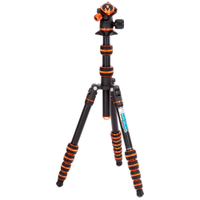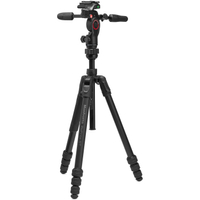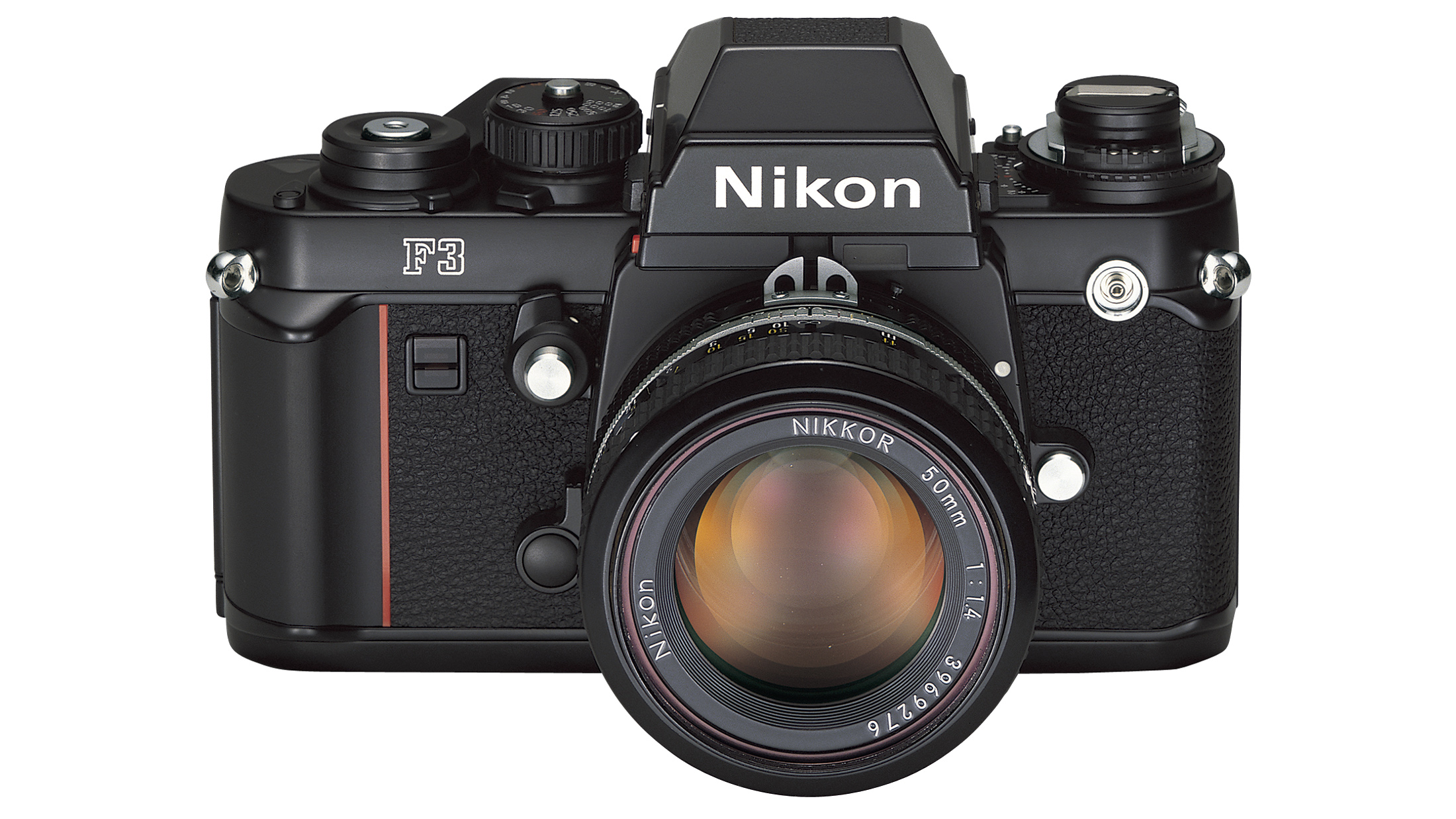Digital Camera World Verdict
I’m not gonna lie. Sometimes I just like to have things my own way, and the Manfrotto Befree Advanced AS obliges. I like that this kit of travel tripod legs and ball head is available with either lever locks or twist locks and that I can choose between aluminum or carbon fiber. It’s sturdy but lightweight, folds down nice and small, and the clever head takes just about anything I can throw at it.
Pros
- +
Compact and lightweight
- +
Speedy and versatile in use
- +
Strong 9kg / 19.8lb payload rating
Cons
- -
Modest 150cm / 59" maximum height
- -
No monopod conversion
- -
Feet don’t have retractable spikes
Why you can trust Digital Camera World
I’m still using a Manfrotto tripod that looks like it came off the Ark, but was actually owned by my dad for decades before I took it over. Let’s just say the company has earned a reputation for building tripods to last. By way of further introduction, it all started when Lino Manfrotto, an Italian photojournalist started selling light stands and the like, back in the 1960s.
Today, the ‘Befree’ range of travel tripods is among Manfrotto’s bestsellers and aims to be among the best travel tripods that money can buy. They’re suitably compact and lightweight and fit right in with the current vogue for mirrorless cameras. Going by the codename of MKBFRTA4FB-BH, the Befree Advanced AS that I’m reviewing here is one of the latest kits, launched in 2024 at the same time as the Befree GT PRO 3-Way, the latter being ideal for content creators who are into shooting video as well as stills. That said, the Befree Advanced AS is also very versatile and makes a decent stab at videography for a tripod kit that has a ball head up top.
Manfrotto Befree Advanced AS: Specifications
| Material | Aluminum |
| Folded height | 40cm / 15.7" |
| Maximum operating height | 150cm / 59" |
| Minimum operating height | 40cm / 15.7" |
| Weight | 1.51kg / 3.3lb |
| Load rating | 9kg / 19.8lb |
| Sections per leg/center column | 4 / 1 |
| Leg section diameters | 22.5, 19, 15.5, 12mm |
| Locking leg angles | 3 |
Manfrotto Befree Advanced AS: Price
Few of us have money to burn nowadays (if ever) and with one eye on the budget, I went for the aluminum version of the Manfrotto Befree Advanced AS tripod kit, which sells for around $200/£174. There’s also a carbon fiber version but that’s about 50 percent more expensive to buy, at around $290/£279, and only saves 260g / 9.2oz in weight.
I decided that pound for pound, the aluminum edition was a better value and I also went for the version of the tripod that has twist clamps for the leg sections, rather than lever locks, as I find twist-action clamps quicker and more intuitive to use. The lever-lock and twist-lock versions are priced the same and, either way, $200/£174 makes them good value in my books, especially considering that the Manfrotto Befree Advanced 494 Center Ball Head that’s included in the kits costs around $100/£81 on its own, and that Manfrotto also throws in a stylish carrying bag with the kits.
Manfrotto Befree Advanced AS: Design & Handling
Manfrotto says that the new additions to its top-selling Befree range of tripod legs and kits are designed with mirrorless cameras firmly in mind. As such, they’re sufficiently versatile to cater to stills and video shooting, while also being compact and lightweight. Indeed, the Befree range has always been designed as travel tripods, for content creators ‘on the go’.
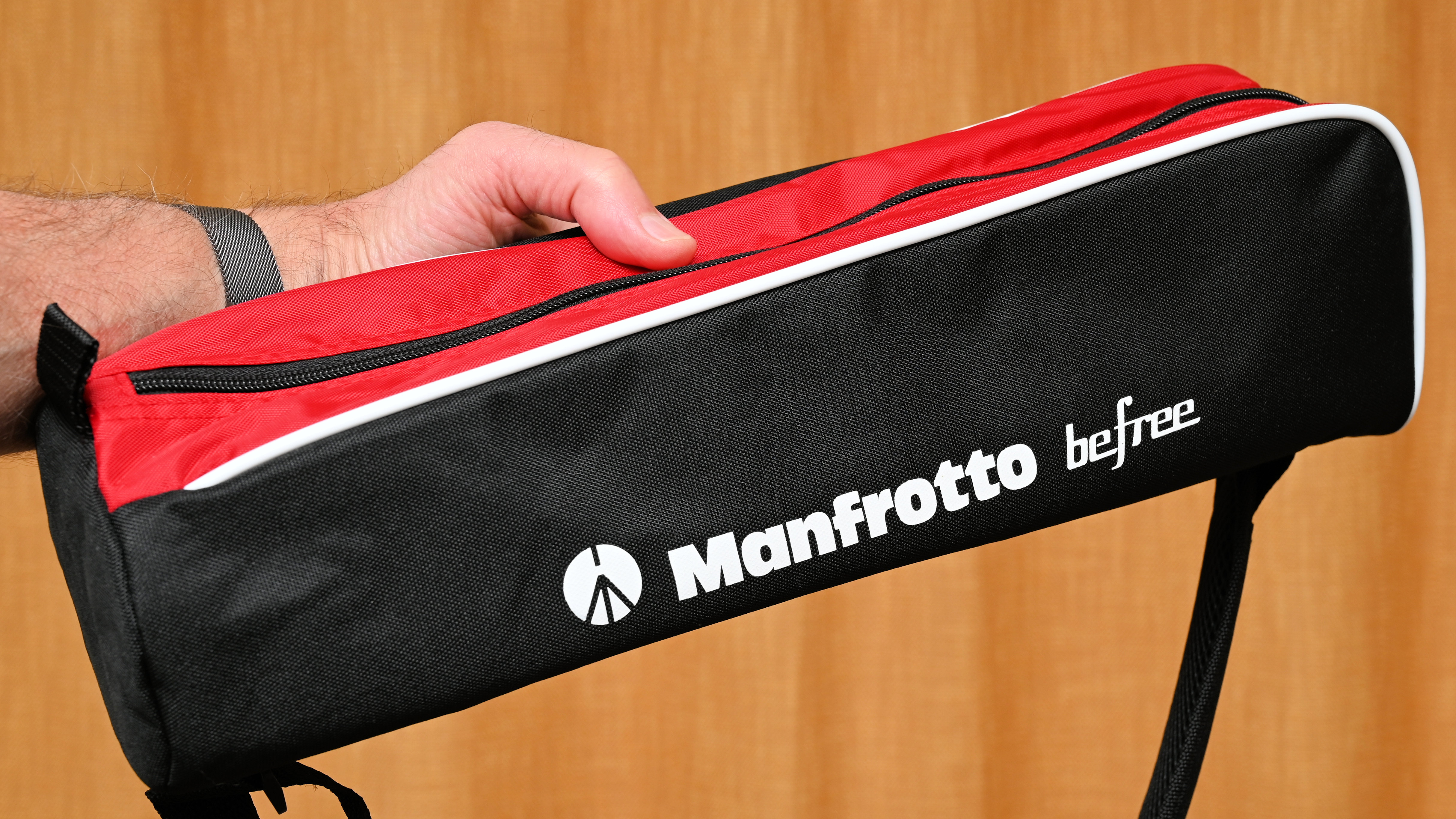
Let’s start at the top and work our way downwards. One of the things I like best about the Befree Advanced AS tripod is the Befree Advanced 494 Center Ball Head that’s included in the kit. It’s super quick and easy to work with but fully featured, with independent adjustments for the main ball lock/release, an adjustable friction damper, and a panning lock.
This makes overall positioning very simple while enabling me to tailor the head to different weights of the kit, up to a maximum payload rating of 9kg / 19.8lb. The panning lock is great for shooting video, as well as for taking a sequence of stills to stitch into a panorama either in-camera or at the editing stage.
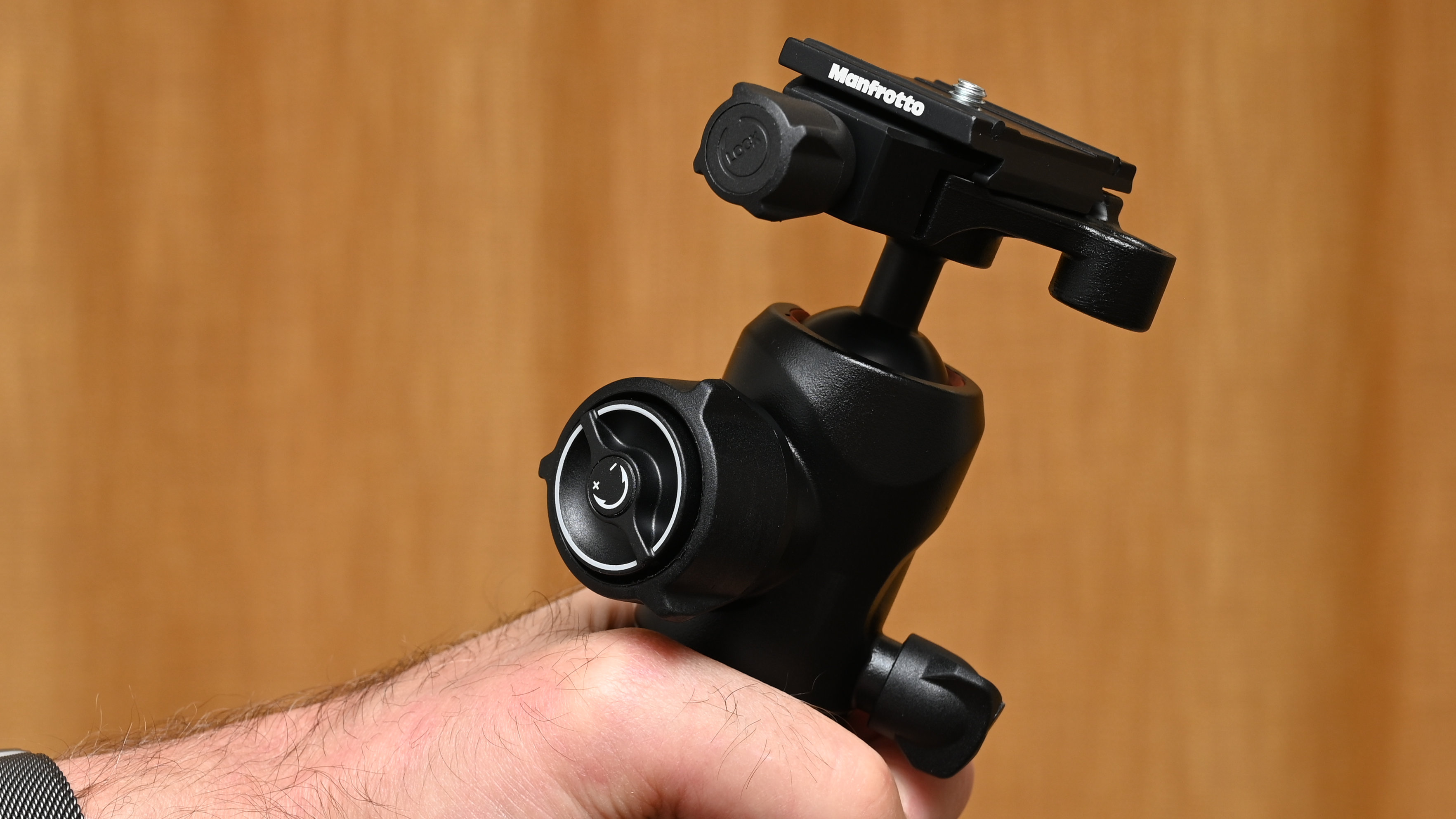
What’s more, the head has a 200PL PRO quick-release system that’s Arca-Swiss compatible. That’s great for mounting cameras fitted with L-brackets, as well as big telephoto lenses that have Arca-Swiss profile feet on their tripod mounting collars, and for other accessories like a camera cage.
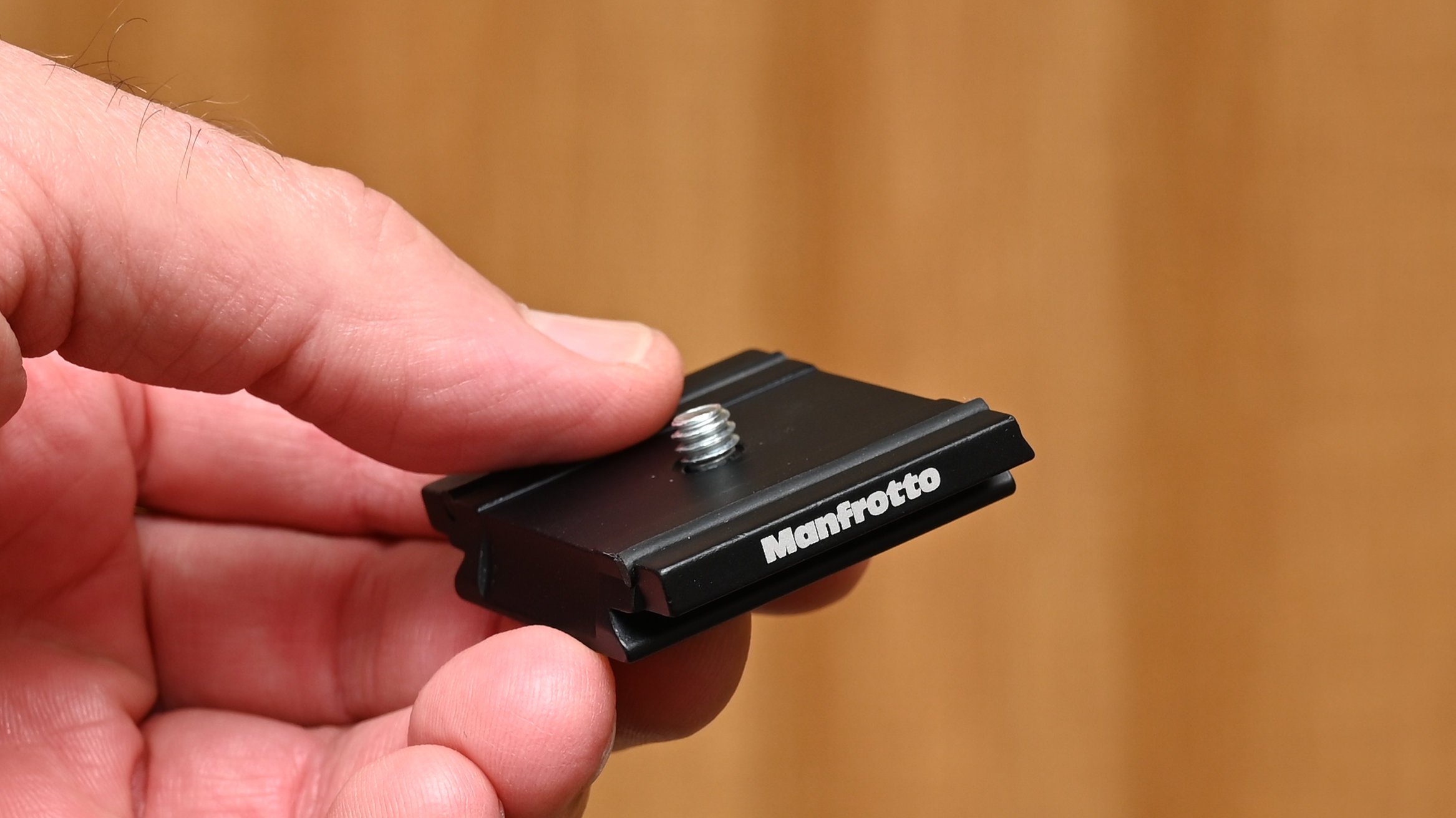
Moving down to the spider on the tripod legs, just below the head, there’s a further attachment option in the way of Manfrotto’s ‘Easy Link’ socket, ideal for mounting an LED video lamp, microphone, or other accessories. For even greater versatility, you could invest in something like the Manfrotto 244MINI Friction Arm, with its central pivoting joint. It’s pretty pricey though, at around $150/£120. The base plate joining the tripod legs to the head has a pretty standard 40mm diameter.
Naturally, you could fit a different head but, for me, the legs and head in this kit are perfectly matched. An eyelet is also featured on the shoulder, which is ideal for adding a weight bag or a carrying strap to improve stability.
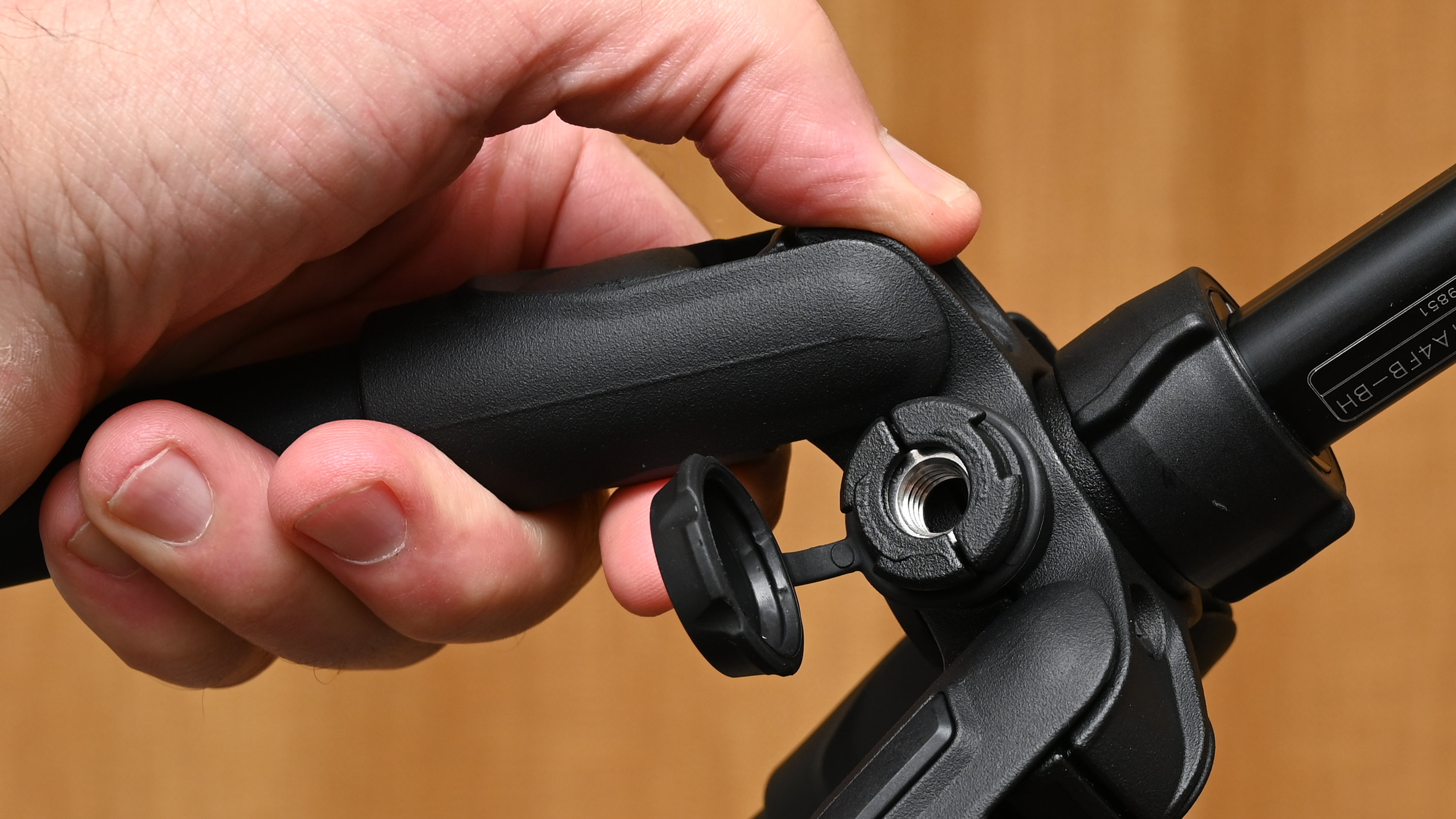
Although aluminum rather than carbon fiber, the legs of this kit have a high-quality black anodized finish that looks luxuriously smart. Aluminum is notoriously cold to the touch in chilly temperatures, so the comfort padding that’s featured on one of the legs is very welcome.
As with the vast majority of modern travel tripods, the legs swing up so that the feet encircle the head, with the center column fully extended, which takes a chunk off the stowage size. In this case, the kit folds down to just 40cm / 15.7" in length and is a snug fit in the carrying bag that’s provided. The bag itself is stylish but fairly basic. It certainly doesn’t qualify as a padded soft case.
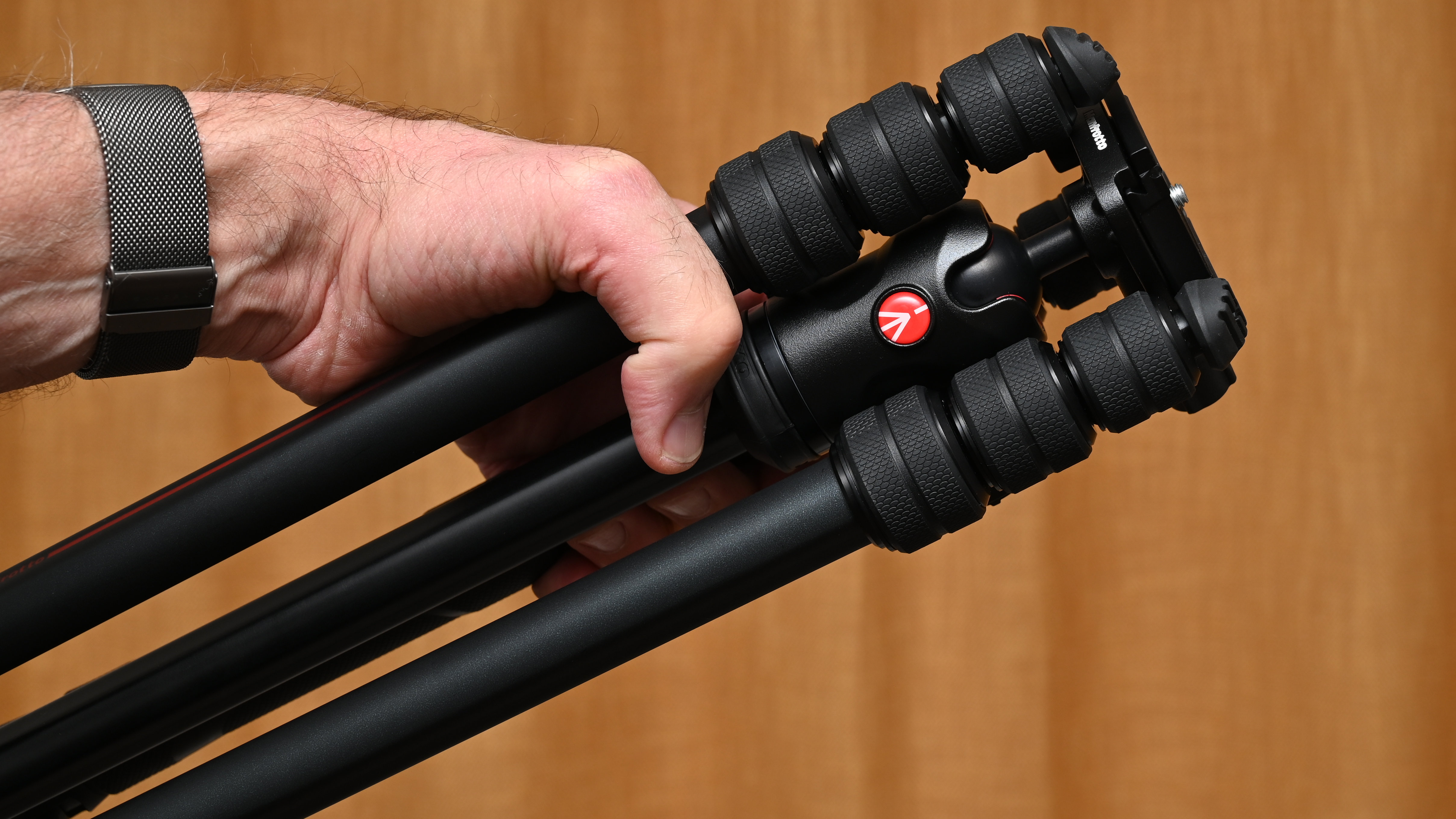
Further attractions of the legs include quick-action twist clamps. There are four sections to each leg, with diameters of 22.5, 19, 15.5, and 12mm, so the bottom sections aren’t overly thin and spindly. As I’ve mentioned, an alternative version of the tripod is available that has lever locks instead of twist locks.
However, I like that I can easily grab all of the twist locks in one hand when the tripod is folded down, and release them in one easy gesture. The amount of rotation needed to release them is minimal.
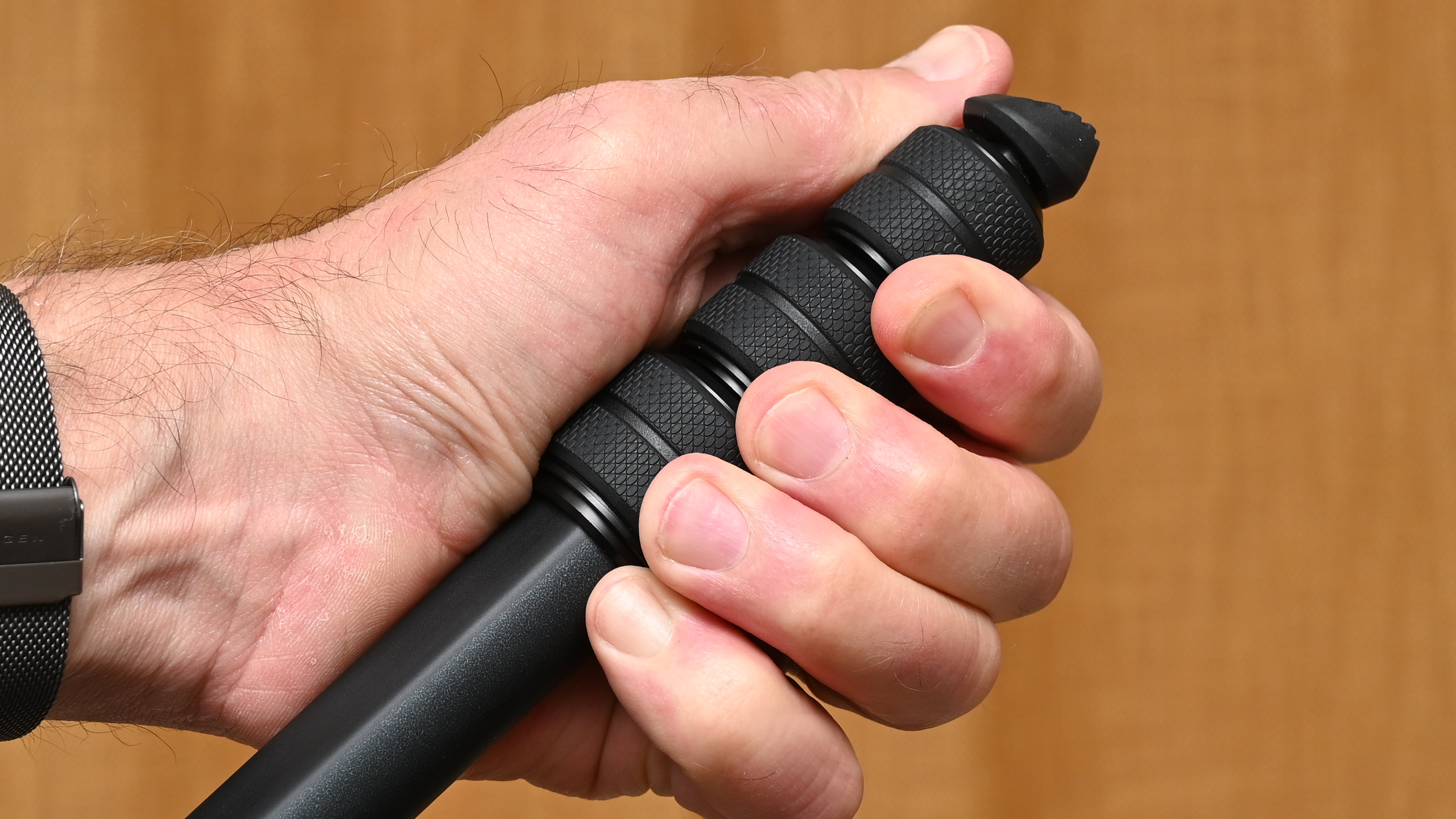
As well as swinging vertically upwards, the legs have three lockable angles. That helps with shooting on uneven terrain and working around obstacles. Wider leg angles also make the tripod more stable and secure when shooting from low operating heights. I like that the mechanism for releasing the leg angle locks is again quick and easy to use, with a simple sliding action.
However, there’s no facility for removing one of the legs and combining it with the center column for use as a monopod. Down below, the feet are made of non-slip rubber pads, although there are no retractable metal spikes which would arguably be better when working on loose ground.
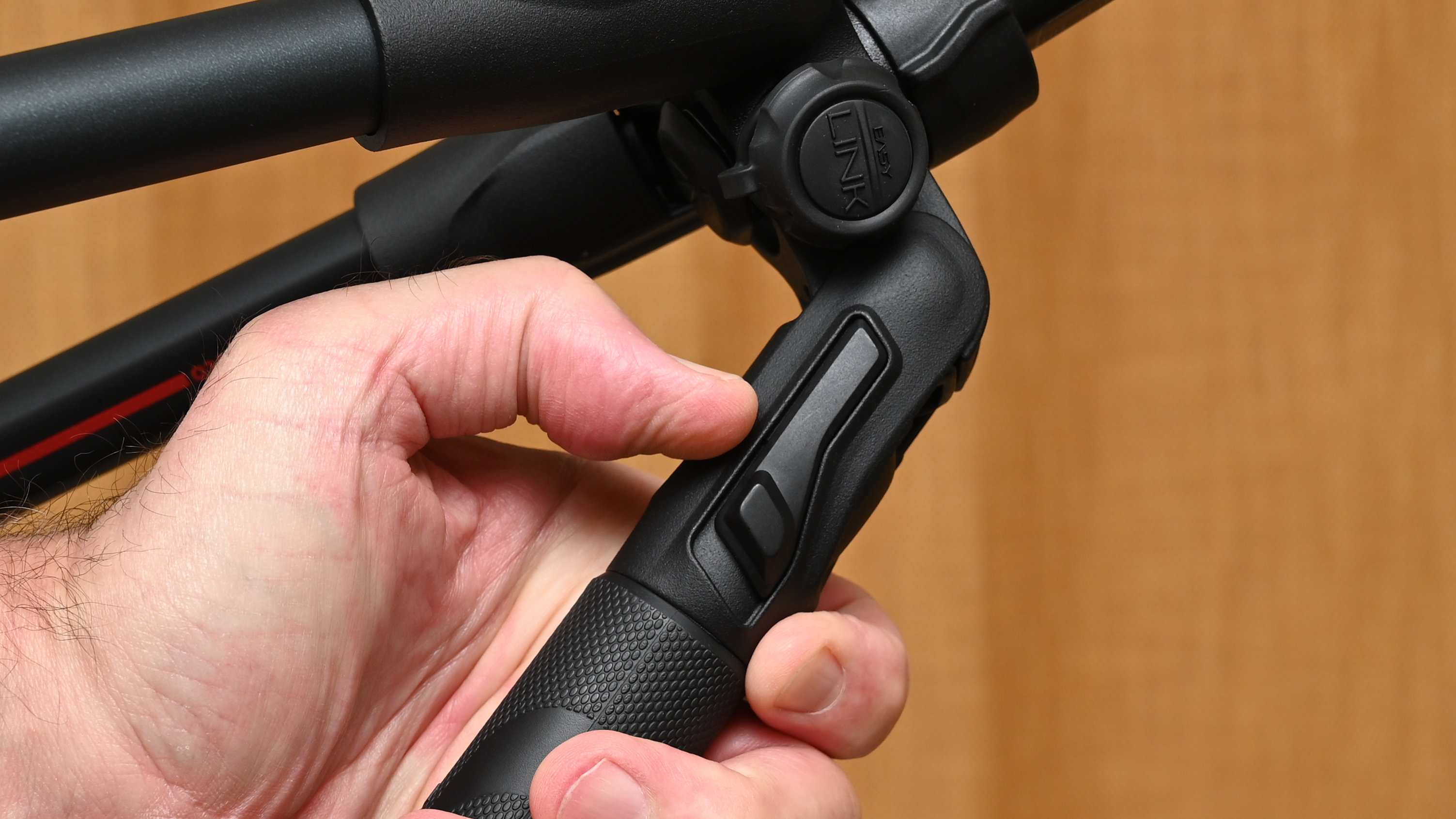
Manfrotto Befree Advanced AS: Performance
A key aspect of the performance of any tripod is that you actually have it with you when you need it. Many tripods are so big and clunky that I leave them at home instead of lugging them around, making them useless. Folding down nice and small and weighing in at just 1.51kg / 3.3lb, this complete kit of legs and ball head is impressively lightweight for an aluminum setup and easy to carry.
And speaking of setup, it’s quick and easy to transform the tripod from its folded to operational configuration, despite the legs swinging up to surround the extended center column. That can often be a time-consuming chore with travel tripods.
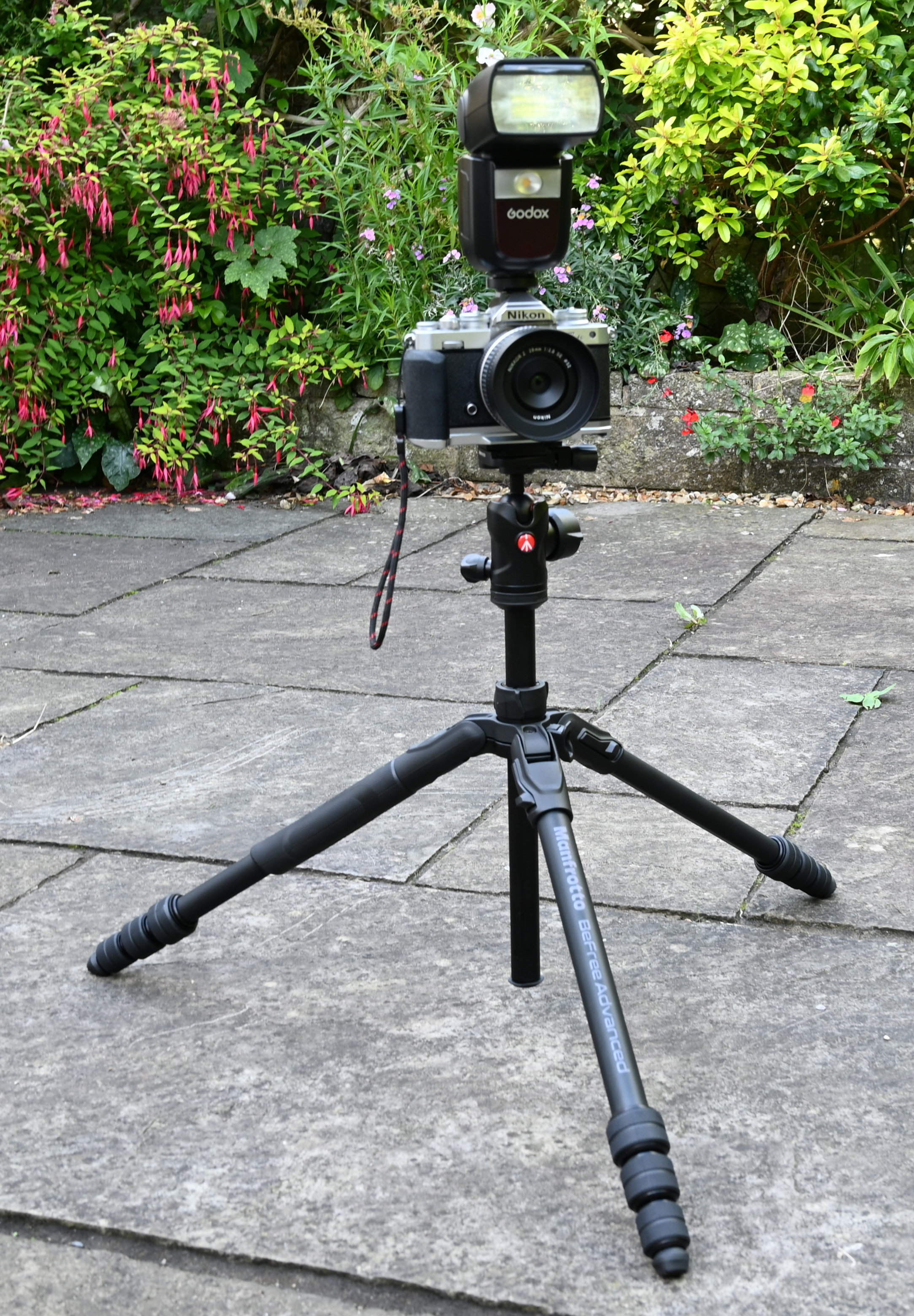
A limiting factor in performance is that the maximum height is 150cm / 59", or 4’ 11”. Being an oversized 6’ 5” tall myself, that can feel a bit on the low side. However, the tilting and vari-angle screens of my mirrorless cameras come to the rescue and, at the end of the day, I’d rather have a travel tripod that actually folds down small enough for traveling, without having extra leg sections and maybe a telescopic center column to increase setup (and fold-down) time.
With only four sections in each leg and a decent diameter for the one-piece center column, none of the components are overly thin and spindly, and the net result is that the Manfrotto gives rigid and stable support. That’s naturally the key performance factor for any tripod.
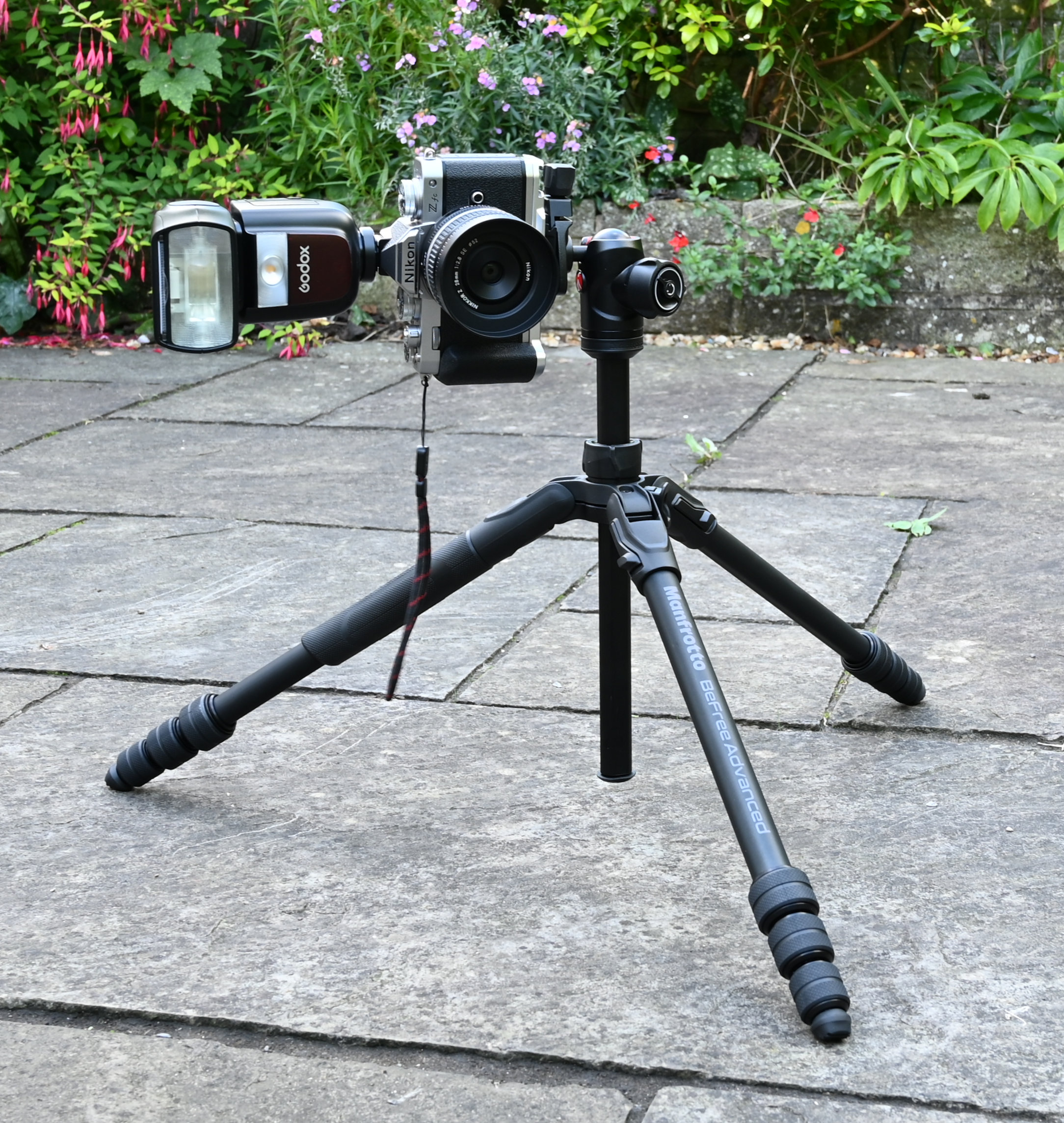
The same goes for the ball head. There have been many a good set of tripod legs that have been compromised by a relatively poor head. For me, the Befree 494 Center Ball Head is the cherry on the top of the tripod kit, so to speak, and a great performer in its own right. Teamed up with the legs, the complete kit is a real winner.
Manfrotto Befree Advanced AS: Verdict
I love the head and love the legs – what’s not to like? Very little as it turns out, although I do find the maximum operating height of 150cm / 59" can be a bit limiting sometimes. Then again, if the tripod was taller, it wouldn’t fold down to such a compact carrying size without further, unwanted compromises. For me, the Manfrotto strikes the right balance.
Some travel tripods have five sections in each leg, rather than four, and an extending 2-piece center column, but they take longer to set up and fold down again, and can also feel a bit flimsy at full height. Some competitors also convert into a monopod for dual duty, but that’s a feature that I’ve never felt the need to use. This Manfrotto is plenty versatile enough for my needs and it has a strong maximum load capacity of 9kg / 19.8lb.
I don’t generally use a camera and lens combination that comes anywhere near that, especially when traveling around, but the load rating translates into solid and sturdy support for medium-weight camera outfits. All in all, this tripod kit is a travel-friendly winner and great value for money.
| Features | The legs and head are both feature-rich but there’s no monopod conversion facility. | ★★★★☆ |
| Design | Manfrotto knows a thing or two about tripod design, amply demonstrated in this kit. | ★★★★★ |
| Performance | Rigidity and overall performance are excellent for a lightweight set of legs and ball head. | ★★★★★ |
| Value | Considering the quality and versatility of the ball head as well as the legs, it’s great value. | ★★★★★ |
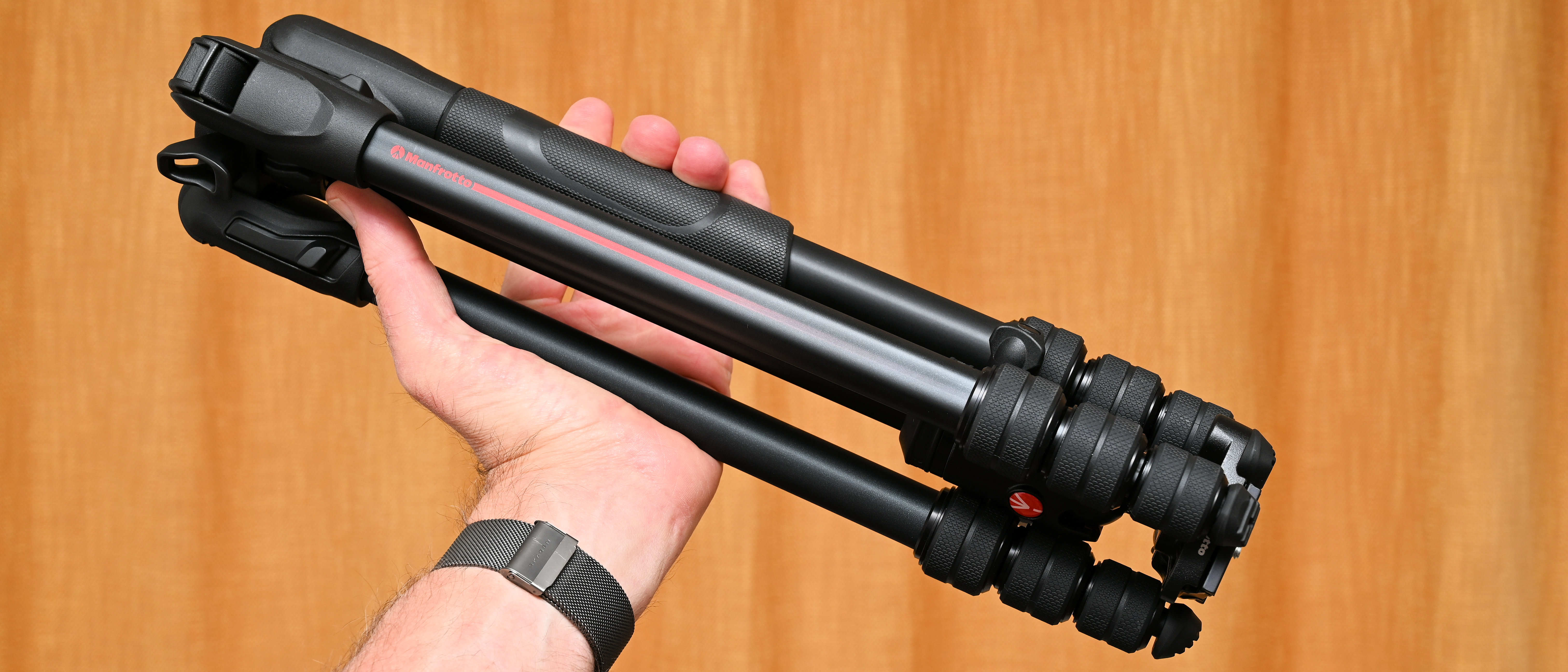
Should you buy the Manfrotto Befree Advanced AS?
✅ Buy this...
- You want a complete travel tripod kit that comes with a high-performance ball head and gives solid support.
- You like using a ball head that has the added attractions of adjustable friction damping and a panning lock.
🚫 Don't buy this...
- You’d prefer a tripod that folds down even smaller, and don’t mind the chore of setting up extra leg sections and an extending center column.
- You’d rather have a 3-way head than a ball head, which is arguably more ideal for shooting video.
Alternatives
The 3 Legged Thing Punks Corey 2.0 folds down to just 36.1cm / 14.2" thanks to its 5-section legs and 2-section center column, and converts into a monopod. It’s competitively priced at around $179/£162 and has a strong payload rating of 14kg / 31lb.
Launched simultaneously in 2024, the Manfrotto Befree GT PRO 3-Way has a fluid 3-way head that’s a better fit for ‘hybrid’ stills and video shooting. The aluminum version of this kit is more pricey, retailing for around $329/£284.
Matthew Richards is a photographer and journalist who has spent years using and reviewing all manner of photo gear. He is Digital Camera World's principal lens reviewer – and has tested more primes and zooms than most people have had hot dinners!
His expertise with equipment doesn’t end there, though. He is also an encyclopedia when it comes to all manner of cameras, camera holsters and bags, flashguns, tripods and heads, printers, papers and inks, and just about anything imaging-related.
In an earlier life he was a broadcast engineer at the BBC, as well as a former editor of PC Guide.

